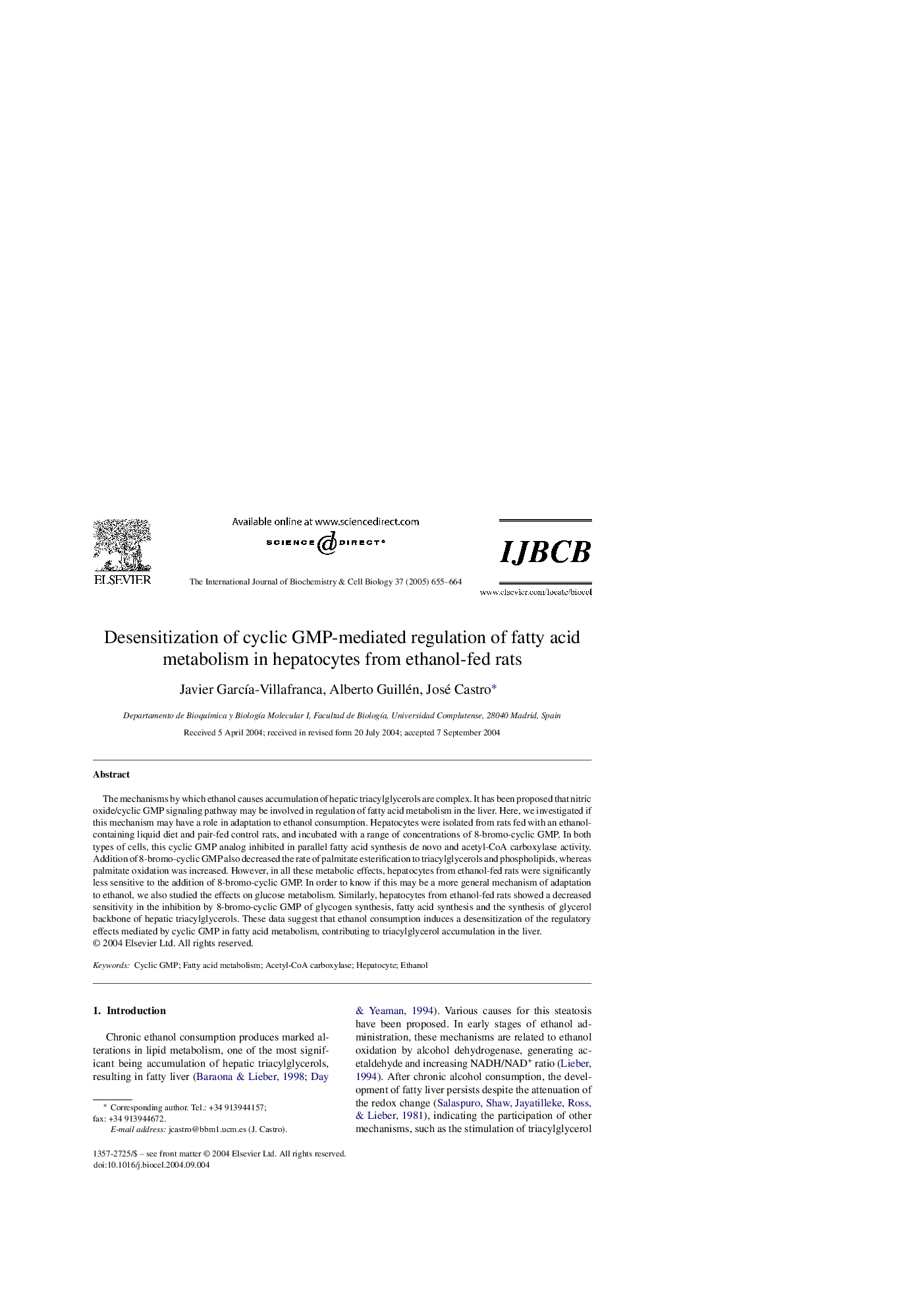| Article ID | Journal | Published Year | Pages | File Type |
|---|---|---|---|---|
| 9890087 | The International Journal of Biochemistry & Cell Biology | 2005 | 10 Pages |
Abstract
The mechanisms by which ethanol causes accumulation of hepatic triacylglycerols are complex. It has been proposed that nitric oxide/cyclic GMP signaling pathway may be involved in regulation of fatty acid metabolism in the liver. Here, we investigated if this mechanism may have a role in adaptation to ethanol consumption. Hepatocytes were isolated from rats fed with an ethanol-containing liquid diet and pair-fed control rats, and incubated with a range of concentrations of 8-bromo-cyclic GMP. In both types of cells, this cyclic GMP analog inhibited in parallel fatty acid synthesis de novo and acetyl-CoA carboxylase activity. Addition of 8-bromo-cyclic GMP also decreased the rate of palmitate esterification to triacylglycerols and phospholipids, whereas palmitate oxidation was increased. However, in all these metabolic effects, hepatocytes from ethanol-fed rats were significantly less sensitive to the addition of 8-bromo-cyclic GMP. In order to know if this may be a more general mechanism of adaptation to ethanol, we also studied the effects on glucose metabolism. Similarly, hepatocytes from ethanol-fed rats showed a decreased sensitivity in the inhibition by 8-bromo-cyclic GMP of glycogen synthesis, fatty acid synthesis and the synthesis of glycerol backbone of hepatic triacylglycerols. These data suggest that ethanol consumption induces a desensitization of the regulatory effects mediated by cyclic GMP in fatty acid metabolism, contributing to triacylglycerol accumulation in the liver.
Related Topics
Life Sciences
Biochemistry, Genetics and Molecular Biology
Biochemistry
Authors
Javier GarcÃa-Villafranca, Alberto Guillén, José Castro,
